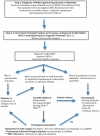The older adult driver with cognitive impairment: "It's a very frustrating life"
- PMID: 20424254
- PMCID: PMC2915446
- DOI: 10.1001/jama.2010.481
The older adult driver with cognitive impairment: "It's a very frustrating life"
Erratum in
- JAMA. 2010 Jun 16;303(23):2357
Abstract
Although automobiles remain the transportation of choice for many older adults, late-life cognitive impairment and dementia often impair the ability to drive safely. However, there is no commonly used method of assessing dementia severity in relation to driving, no consensus on the assessment of older drivers with cognitive impairment, and no gold standard for determining driving fitness. Yet clinicians are called on by patients, their families, other health professionals, and often their state's Department of Motor Vehicles to assess their patients' fitness to drive and to make recommendations about driving privileges. This article describes the challenges of driving with cognitive impairment for both the patient and caregiver, summarizes the literature on dementia and driving, discusses evidence-based assessment of fitness to drive, and addresses important ethical and legal issues. It also describes the role of physician assessment, referral for neuropsychological testing, screening for functional ability, tools to assess dementia severity, driving evaluation clinics, and Department of Motor Vehicles referrals that may assist with evaluation. Lastly, it discusses mobility counseling (eg, exploration of transportation alternatives), because health professionals need to address this important issue for older adults who lose the ability to drive. The application of a comprehensive, interdisciplinary approach to the older driver with cognitive impairment will have the best opportunity to enhance patients' social connectedness and quality of life while meeting their psychological and medical needs and maintaining personal and public safety.
Figures
Comment in
-
Cognitively impaired older drivers, risk assessment, and physician responsibility.JAMA. 2010 Aug 18;304(7):744; author reply 744-5. doi: 10.1001/jama.2010.1149. JAMA. 2010. PMID: 20716736 No abstract available.
References
-
- Folstein MF, Folstein SE, McHugh PR. “Mini-mental state”. A practical method for grading the cognitive state of patients for the clinician. J Psychiatr Res. 1975;12:189–98. - PubMed
-
- Petersen RC, Stevens JC, Ganguli M, et al. Practice parameter: early detection of dementia: mild cognitive impairment (an evidence-based review). Report of the Quality Standards Subcommittee of the American Academy of Neurology. Neurology. 2001;56:1133–42. - PubMed
-
- Frittelli C, Borghetti D, Iudice G, et al. Effects of Alzheimer's disease and mild cognitive impairment on driving ability: a controlled clinical study by simulated driving test. Int J Geriatr Psychiatry. 2009;24:232–238. - PubMed
-
- Foley DJ, Masaki K, Ross GW, White LR. Driving cessation in older men with incident dementia. Journal of the American Geriatric Society. 2000;48:928–930. - PubMed
Publication types
MeSH terms
Grants and funding
LinkOut - more resources
Full Text Sources
Medical


